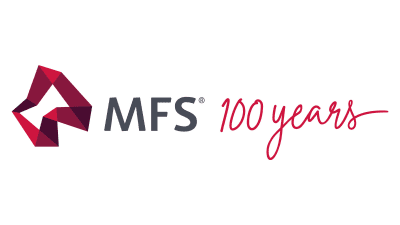Getting the best out of life’s sunset



Paul Harding-Davis looks at the five retirement transition phases now that he is approaching the ‘sunset’ of his life.
1978. The year I joined the industry. That must mean I’m now approaching the “sunset” of my life. Great news. I’m likely to have a very long time in “retirement”, and much of it high quality and independent. There can, however, be no ignoring the fact that at some stage some of it I may be frail and dependent.
How, what, and who will help me make this time one of the best phases of my life? It will after all likely be a third of my life.
I write this reflecting on mine and my family’s experiences, together with what is now almost 39 fortunate years in this industry. I also input an eclectic range of reading and seminars from all of which I’ve formed a framework to help understand and manage the stages or transition points in this sunset period. The ‘Five Transitions Framework’.
Before I outline this though, some scene setting and assumptions will help with the conclusions.
My core premise is that by good planning and communication every transition is materially improved. Added to this belief is that a financial planner is the best placed person to be leading clients through these transitions, and helping bring in other specialist help where needed. Most advisers already work with clients in this phase of life.
The financial elements of these transitions are important and need to be planned for and executed well and in no way do I want to minimise that, but the other dimensions – social, emotional, and physical – are in my view more important to a great series of outcomes in people’s lives.
Let’s start with the framework:
Retirement entry
It begins with retirement entry – which should begin five years or more prior to retirement. This sets up managed independence. From T2 conversations should ideally start including the family. T3, or dependent independence, is essential to have begun years prior and common language and understanding reached. Similarly, dependent and death. The last two transitions have the added common problem of denial by one or both if a couple.
Let’s unpack them a bit further.
Industry doyens like Owen Weeks and others have done great work on the years leading up to retirement. There are advisers who have had to help executives who have retired without the transition. Without the sense of purpose and activity it can lead to loss of enthusiasm, energy, and even mental health issues.
Public service notwithstanding, we are advising one of the first generations for a long active and financially strong retirement to be common.
In the 1980s, one of the most far-seeing authors, Charles Handy, wrote about the ‘portfolio life’. He described it this way: life provides four types of work – paid work, study work, philanthropic work and leisure work. A well-managed life has all four but in different balances at different phases.
Twenty-five years ago, this resonated with me and I have worked toward achieving this since. The family, FYI, I fit into the leisure work box.
This is one kind of language that can be used for the first transition. Having a language and framework to talk to all advised clients (and family and friends) means you are ready to make a difference, differentiate yourself, and win new clients.
However it is done, I believe it takes in the order of five years for someone to get ready for the loss of regular work. Doubly so if the plan is, say to “move to the Sun”, or to somewhere less expensive. People need to spend years building new networks, new activities, and making sure their family is actively connected.
This is also the time of life when new purposes can be found. In the portfolio life, community and charity work can come to the fore. People have the time and energy to make an enormous contribution to some of their passions. A friend who retired from the fire service and is a passionate local rugby participant has for 10 years done a magnificent job of maintaining the ground. He is connected, active, and has a strong purpose.
Better plans and conversations about health can also be gold. In the late 70s and 80s, clients of financial planners who are asked will commonly say about their lives:
“I wish I’d looked after my health better when I was younger, and if you are surrounded by family and friends who love you in your last days the money doesn’t matter”.
There is a great deal of research into wellbeing which supports this. Of course, I do not mean to discount the role a base level of income and assets in retirement plays in the above, but extra money provides surprisingly little extra utility.
Managed independence
During T2, say the prime of the sunset, the conversations and planning need to start about the net transition to managed independence. I think this is the least well-handled stage. During this time – if a positive attitude and framework are in play then this stage of retirement will be healthier, more successful, and the fourth transition to dependence is likely to be more positive.
Dependent independence
The important point to emphasise is that despite not being physically safe or able to do everything they used to, they are still in control! They just need some physical assistance. There are three ways this can happen. Outsourced to paid labour, taxis or Uber, family and friends, or move to a retirement village.
Dependent
There are still a lot of old perceptions about how retirement villages, nursing homes etc used to be. Things have changed a great deal. Whatever is possible or desired the conversation with the clients and ideally their families need to start at a stage where they are willing.
This is the major time of denial. Slowing down happens slowly usually, and fear and comfort zones creep in. In my experience, there comes a point where you can no longer have the conversations. The denial is too strong. Nonetheless this can still be a time of being in control, of some kinds of travel, of family and social activity. Changing ways of people too far into this is impossible.
As we get older our brains become less flexible and less able to change. The discussions cannot be left to happen until it is clear that it is time – or it is too late. I don’t need to tell financial advisers about estate planning needs but if not in place then
problems are on the horizon.
At some stage, there will come dependence and frailty. Again, planning and conversations can still have a person having some sense of control. Most importantly it is already agreed by the individual with their family, friends and loved ones what their progression will be, where it will be and how they will work together. Trying on very short and health dictated notice to find somewhere means a loss of control and an almost guaranteed sub-optimal outcome.
Death
And now to the final transition – death. As a society, we have poor language and skills regarding death. The only positive language is usually heroic or military: “They fought a brave fight”, “They fought to the end”.
Personal experience is that most people shy away from having the conversation and therefore from making plans well. Estate planning, funerals, memories etc. Here again financial advisers are already actively involved, but I am advocating continued conversations to prepare clients and families.
Their outcomes will be better, the adviser’s outcomes will certainly be better. Satisfaction and personal fulfillment; financial due to referrals and new clients amongst the family make for a rewarding and valuable business.
Financial advisers go on a long journey with their clients. More and more clients are, like me, nearing their sunset or in it. How good a sunset will you and your practices help them plan?
Paul Harding-Davis is principal at PHD Management Consulting.
Recommended for you
In the latest edition of Ahead of the Curve in partnership with MFS Investment Management, senior managing director Benoit Anne explores the benefits of adding global bonds to a portfolio.
While M&A has ramped up nationwide, three advice heads have explored Western Australia’s emergence as a region of interest among medium-sized firms vying for growth opportunities in an increasingly competitive market.
Private wealth firm Escala Partners is seeking to become a leading player in the Australian advice landscape, helped by backing from US player Focus Financial.
In this new series in partnership with MFS Investment Management, delve into all things fixed income and discover how you can use the asset class to build better client portfolios. In this Q&A discussion, MFS managing director- head of wholesale distribution James Langlands sits down with Evidentia senior asset consultant Ron Mehmet to discuss fund selection.









